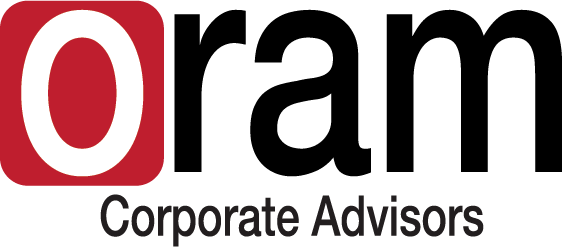Business builds itself from the ground up. Your business internet technology (IT) is no different, which is why your foundation is so critical. The modern office revolves around having strong IT in place. From communications to automated business processes and protecting valuable company data, your foundation is imperative to your organization’s ability to not only thrive but survive.
Without a strong foundation, your business risks everything: Being hacked; watching valuable data be stolen, held ransom, or destroyed; and experiencing crippling downtimes when systems fail to function properly, costing your organization money every minute your employees can’t function. A strong foundation will help protect your company from experiencing such destructive problems and allow it to keep functioning smoothly even through inevitable IT bumps in the road.
What is Foundation in IT Terms?
At ORAM Corporate Advisors, we view the foundation as the nuts and bolts of your operation. We consider that to be your firewall, your switches, and your wireless access points. This is the core of your network. These are the things that have to be 100 percent reliable all the time and what literally makes the world go round for your business.
Firewalls as a Gateway
The gateway in and out of your network is your firewall. When it comes to the network security of the modern office, the firewall is your first and best line of defense. It monitors and controls both incoming and outgoing traffic on your network based on the security rules set for it. What rules are employed depends on how your company operates, the security it requires, and industry regulations. The best firewalls are “smart firewalls” which are capable of configuring, monitoring, and managing network traffic on the fly.
An average firewall is a hardware device or even a software program that is a barrier, a wall, between your systems and network and the internet. Its purpose is to limit unnecessary communication between your computer network and the internet.
Smart firewalls offer much to your business in terms of additional protections. Today’s modern office should employ smart firewalls as they include:
- Antivirus, Antimalware, and Limited Spam Filtering
- Deep Packet and Stateful Inspection
- Packet, Adjustable Content, and “Default to Now” Traffic Filtering
The IT experts at ORAM can configure your smart firewall to maximize its protective benefits for the specific needs of your business. This ensures there are no gaps or vulnerabilities in your security settings that could allow a hacker to infiltrate your business system. We also take the time to keep your firewall current and patched.
Switches: Your Business Connection
Network switches are another important piece of your modern office network. This is the link, if you will, that connects devices on your network. It’s the switches that receive, process, and forward data moving in and out of your network so that it arrives at its proper destination.
The most common switch among business networks is one that handles Ethernet traffic. That is to say, the switches that connect your business to the internet. Without such switches, your business would become a proverbial island and your business data from email to invoicing may not function properly.
In addition to traditional managed switches, “smart switches” are an evolving option that can offer some management and security. They can be cost-effectively used in large networks as a supplement to managed switches or can be included as the main infrastructure in smaller networks. Smart switches can allow your business to segment its network into workgroups by creating a virtual local area network (VLAN).
Wireless Access Points
Wireless local area networks, or WLAN, are created by using a wireless access point device. These WLANs are typically found everywhere from homes and restaurants to modern offices and large buildings. They provide wireless access to the network for devices such as laptops, printers, and cell phones in a designated area such as your office. This enables your employees and customers to stay connected on a secure wireless network that is isolated from the core network in your office. You can also open or limit wireless guest access to specific applications or times of the day.
Recommended Foundation Hardware
The foundation of the modern office is also cloud-based. This allows you to know more about what your end users are doing and how traffic is flowing. Traditionally, you’d have to look back through logs and that is a time-consuming process. The modern office can’t afford to sit idle while the IT staff sifts back through logs to determine where things went wrong. Smart firewalls, switches, and access points provide real-time information through cloud-based systems that allow us to make the best decisions with up-to-date information.
At ORAM Corporate Advisors, we recommend using Cisco Meraki for all of those devices because it’s one of the most reliable cloud-based systems to date for business networks. This is important because it is the foundation of your business. User management, connectivity, and the like don’t matter if you and your employees can’t even access the internet.
Without a strong foundation, your business floor will drop out from beneath you. Commerce, trade, and services for your organization will come to a screeching halt without a strong foundation. Though integrating a strong network can be costly, it is the most important investment you will make to keep your business moving forward.
Ensuring a Strong Foundation
There are several key components to developing and maintaining a strong IT foundation in the modern office. Those include the following:
- Make sure your firewall(s), switches, and wireless access points are current, up-to-date, and are running the latest firmware.
- The hardware needs to be current as well. Is it still being supported and warrantied by the manufacturer?
- Can your network handle your current business needs and still allow room for growth?
For everything you do or that your employees do, your foundation is key. By ensuring that you have the major components from your firewalls to switches and wireless access points in order, you can keep your business moving forward smoothly at all times. If you need assistance with building or bettering your business foundation, contact ORAM online or call us today at (617) 933-5060.





